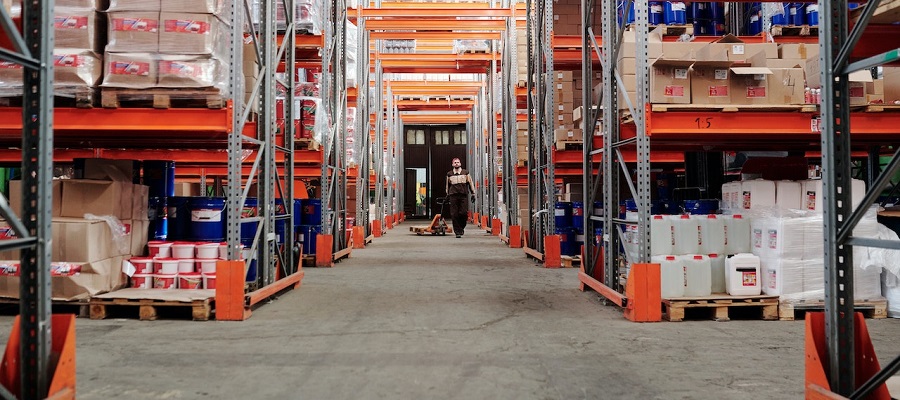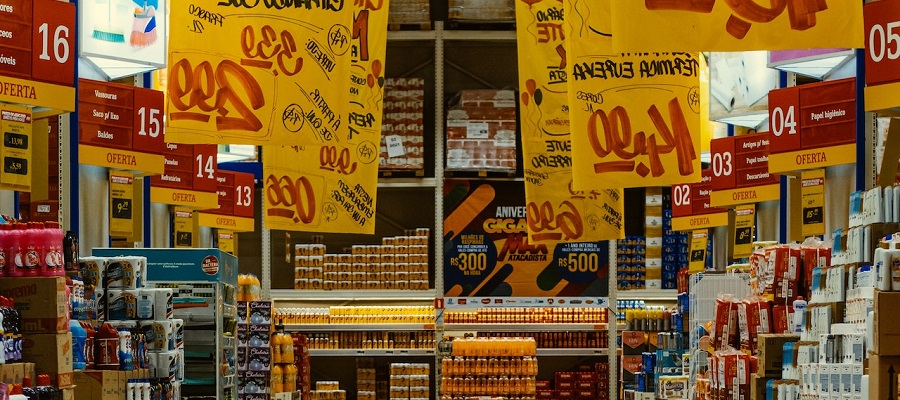Machinery Financing at Grocery Wholesalers
Grocery wholesalers rely on a variety of equipment and machinery to operate their businesses, including refrigeration units, forklifts, and conveyor systems. Acquiring this large equipment can be a significant financial investment for a business. In this article, we'll explore the various financing and leasing options that may be available to grocery wholesalers for large equipment or machinery.
Types of Machinery Financing Options
Grocery wholesalers may have a few different financing options available to them when it comes to acquiring machinery. These options can include:
-
Bank loans: Grocery wholesalers may be able to secure a bank loan to finance the purchase of machinery. This option may involve borrowing a set amount of money at a fixed interest rate and paying it back over a set period of time.
-
Leasing: Grocery wholesalers may also choose to lease machinery rather than purchasing it outright. Leasing can allow a business to use the machinery for a set period of time and return it at the end of the lease term. This option can be a good choice for businesses that do not have the upfront capital to purchase the machinery or that do not want to commit to owning the machinery long term.
-
Vendor financing: Some machinery vendors may offer financing options to their customers. These options may involve financing the purchase of the machinery through the vendor or through a third-party lender.
-
Government financing programs: Grocery wholesalers may also be able to access government financing programs to help finance the purchase of machinery. These programs may offer low-interest loans or other financial assistance to businesses.
Advantages and Disadvantages of Machinery Financing Options
Each financing option for machinery has its own advantages and disadvantages. Grocery wholesalers should consider these factors when deciding which option is best for their business.
-
Bank loans: Bank loans can offer a predictable repayment schedule and fixed interest rates, but they may require a good credit score and collateral.
-
Leasing: Leasing can offer flexibility and lower upfront costs, but the business may not own the machinery at the end of the lease term.
-
Vendor financing: Vendor financing can be convenient and may offer special terms or discounts
Machinery leasing at grocery wholesalers
Grocery wholesalers rely on a variety of machinery to operate their businesses, including refrigeration units, conveyor systems, and forklifts. Acquiring this machinery can be a significant financial investment for a business. In this article, we'll explore the option of leasing machinery for grocery wholesalers.
What is Machinery Leasing?
Machinery leasing is a financing option that allows a business to use machinery for a set period of time without purchasing it outright. At the end of the lease term, the business has the option to return the machinery or purchase it for a predetermined price.
Leasing machinery can be a good option for grocery wholesalers that do not have the upfront capital to purchase the machinery or that do not want to commit to owning the machinery long term. It can also offer flexibility, as the business can choose to upgrade to newer machinery at the end of the lease term.
Types of Machinery Leasing Options
Grocery wholesalers have a few different options when it comes to leasing machinery. These options can include:
-
Operating leases: Operating leases involve the business leasing the machinery for a set period of time and returning it at the end of the lease term. The business is responsible for the maintenance and repair of the machinery during the lease period.
-
Capital leases: Capital leases involve the business leasing the machinery for a set period of time and having the option to purchase it for a predetermined price at the end of the lease term. The business is responsible for the maintenance and repair of the machinery during the lease period.
-
Fair market value leases: Fair market value leases involve the business leasing the machinery for a set period of time and having the option to purchase it for its fair market value at the end of the lease term. The business is responsible for the maintenance and repair of the machinery during the lease period.
Advantages and Disadvantages of Machinery Leasing
Grocery wholesalers should consider the advantages and disadvantages of machinery leasing before deciding if it is the right option for their business.
-
Advantages: Machinery leasing can offer lower upfront costs and the flexibility to upgrade to newer machinery at the end of the lease term. It can also allow a business to conserve capital and preserve credit lines for other uses.
-
Disadvantages: Machinery leasing may involve higher overall costs in the long term, as the business may be paying for the use of the machinery rather than the equipment itself. The business also does not own the machinery at the end of the lease term.


